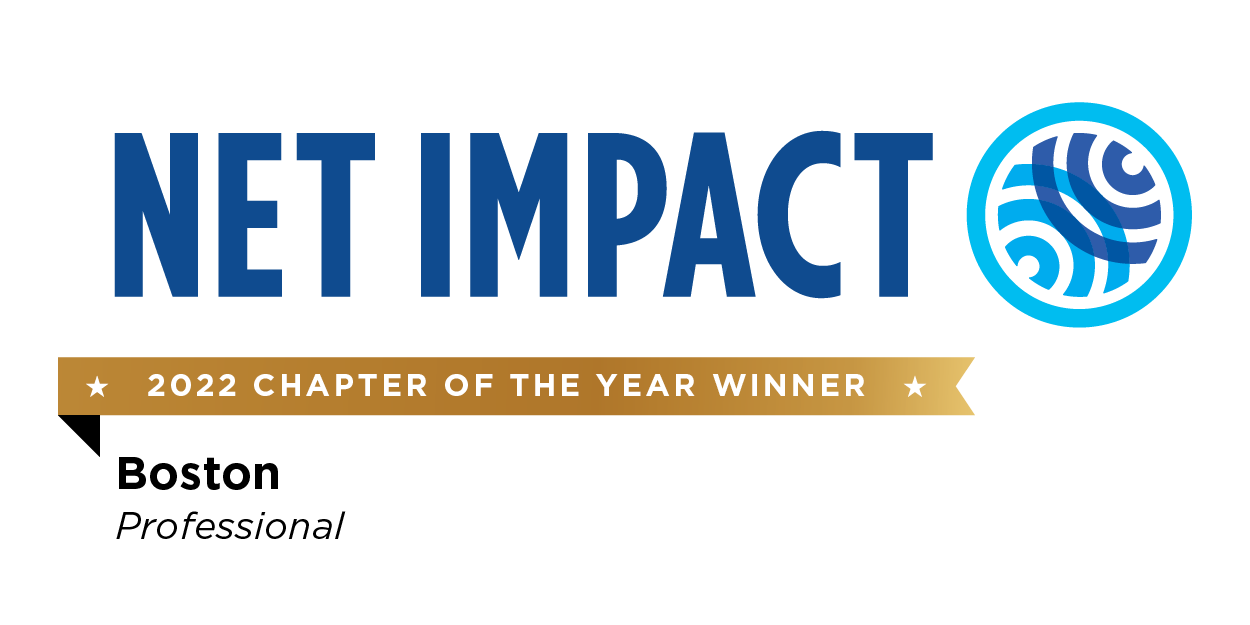Small House Inc is a local non-profit organization currently partnering with the Board Fellows program for Net Impact Boston. Asjah Monroe is the founder and leader of this organization's mission to help youth experiencing homelessness. Read this blog post to learn more about what inspired Asjah to start her own non-profit and how you can best support youth homelessness.
There was a collection of specific moments and experiences with young adults that inspired me to start Small House. Working with young adults who were in an emergency shelter granted me a front row seat to what life was really like for them day in and day out. It only grew harder for them during the pandemic. I came to the realization that Small House was desperately needed because I was encountering so many youth and young adults in homelessness with so few youth-specific places to send them. Getting to know the personal stories and struggles of a few young, tremendously resilient and loveable young adults inspired me to create this movement. Because of them, I took the leap to create Small House.
One personal story that ignited me was Tanisha’s. She’d ended up homeless because of an ongoing conflict with her mother and struggled to adjust to her new situation of being without a place to live. Even though she had a job in retail and was trying to do all the right things to lift herself out of homelessness, her progress was slow and limited for reasons that were out of her control. Tanisha would share about her personal struggles with me, sometimes for hours. Something she said that really stayed with me was, “I’m not built for this. I’m not used to this kind of life and I’m scared. The weather is about to get colder, and I’m worried about what having to be outside constantly is going to do to my health condition that I already have.” Unfortunately, her situation was not atypical.
Statistically, for every 3 that gain access to permanent housing, 19 more remain unhoused.
Research shows that getting folks directly into housing as quickly as possible (an approach called ‘Housing First’) is the most effective response to youth homelessness1. However, there aren’t enough opportunities available for all of the youth who need them. Statistically, for every 3 that gain access to permanent housing, 19 more remain unhoused2. What I’d love for people to realize though, is that these others, the ‘19’, are individuals with names and stories, aspirations and hopes.
If I could sit down with you and have a conversation, I'd tell you all about Rodrigo, who loved a good competition and always wanted to get a game of uno going whenever I saw him. Or how Jordan wanted to go into business as a stylist; their hair was always on point and they would have so much fun telling you all about their home hair care hacks. I wouldn’t neglect to tell you about when Jayden finally moved into his apartment and had it all set up, he was so proud to introduce us to his little hamster named Cupcake.
The most rewarding part of tackling youth homelessness has been the opportunity to form relationships with young adults; seeing them show even just a little bit of progress sparks joy. When they return months or perhaps years later to tell you all about their lives now, or about their kids and how well they’re doing, joy happens. When they come back and find you so that they can tell you, “I’m doing so well now, thank you for everything you did for me,” it has a way of keeping you going.
The most difficult part however, has been continuing to grapple with the immense need that exists. The lion's share of youth and young adults are experiencing homelessness for a collection of reasons: they were already experiencing homelessness in their adolescence because their families were facing housing instability; they’ve aged out of the foster care system; they’re exiting the penal system; or they were asked to leave their home because of conflict or reasons related to sexual and/or gender identity. However, given the stage of life that they’re in, they need time, support, and guidance as they transition into adulthood and into full independence. I encourage folks to consider some simple yet meaningful ways to get involved and show your support for these young adults. One possibility is to offer your unique skill set to a youth homelessness organization as a volunteer. Cash donations are always helpful, but what youth and young adults really need is support and connection. They need people. They need you and me and all of us. I really do believe we can solve the problem of youth homelessness, but we’re going to have to do it together.
Watch our Instagram Live with Asjah!
1 Gaetz, Stephen. (2014). A Safe and Decent Place to Live: Towards a Housing First Framework for Youth.Toronto: The Homeless Hub Press., p.6
2 Rising to the Challenge Plan, 2019, p. 2. Compiled by Boston City gov. Officials and community partners. retrieved 2/19/22


